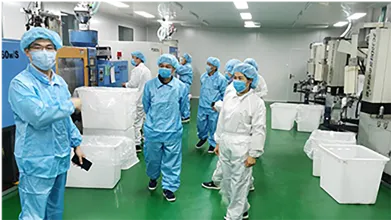Plastic Reagent Bottle Manufacturing Facility for High-Quality Laboratory Supplies
The Rise of Plastic Reagent Bottle Factories A Beacon of Innovation
In the modern landscape of manufacturing, the production of plastic reagent bottles has gained significant attention and importance. As laboratories and industries continue to expand, the demand for reliable, durable, and chemically resistant containers has skyrocketed. This surge has paved the way for plastic reagent bottle factories to emerge as crucial players in the supply chain of various scientific and industrial sectors.
The Importance of Plastic Reagent Bottles
Plastic reagent bottles are designed to safely store and handle a vast array of chemicals, reagents, and samples used in laboratories. Unlike glass bottles, which can be fragile and prone to breakage, plastic bottles offer several advantages they are lightweight, shatterproof, and resistant to many corrosive substances. This versatility makes them ideal for institutions conducting experiments, quality control, and research.
Moreover, the plastic used in these bottles can be customized to meet specific requirements, including UV protection, barrier properties, and compatibility with various substances. As a result, plastic reagent bottles are not just about convenience; they also ensure safety and reliability in potentially hazardous environments.
The Manufacturing Process
The manufacturing of plastic reagent bottles involves several key steps, each requiring precision and high-quality standards. First, manufacturers select suitable plastic materials, commonly polyethylene, polypropylene, or other specialized polymers. These materials are chosen for their chemical resistance, mechanical strength, and flexibility.
Once the materials are selected, the manufacturing process typically involves molding techniques such as injection molding or blow molding. Injection molding allows for the creation of intricate shapes and designs, while blow molding is suitable for producing hollow containers. After molding, the bottles undergo rigorous testing to ensure they meet industry specifications and safety standards.
Quality control is an ongoing process throughout the manufacturing cycle. Factories employ advanced technologies to monitor production, including automated inspection systems that detect defects in real-time. This commitment to quality ensures that each bottle can withstand the rigors of laboratory environments.
plastic reagent bottle factory

Sustainable Practices
In recent years, the focus on sustainability has influenced the operations of plastic reagent bottle factories. With growing environmental concerns, manufacturers are adopting eco-friendly practices to minimize waste and reduce their carbon footprint. This includes using recycled materials in production, implementing energy-efficient processes, and striving for responsible disposal methods.
Some factories are even exploring bioplastics – materials derived from renewable sources – as alternatives to traditional petroleum-based plastics. These innovations not only address environmental concerns but also position companies as responsible players in the global market.
Market Trends and Future Outlook
The market for plastic reagent bottles is expected to grow substantially over the coming years. Factors contributing to this growth include the increased investment in research and development across various industries, particularly pharmaceuticals, biotechnology, and environmental testing. As countries continue to prioritize health and safety, the reliance on durable plastic containers for chemical storage and transportation will inevitably rise.
Furthermore, the globalization of trade means that factories must also cater to international standards and client needs. This adaptability is essential for remaining competitive in an ever-evolving market landscape. Plastic reagent bottle factories that innovate and embrace new technologies – such as automation, artificial intelligence, and the Internet of Things (IoT) – will gain a significant competitive edge.
Conclusion
Plastic reagent bottle factories are at the forefront of innovation, addressing the diverse and complex needs of modern laboratories and industries. With their commitment to quality, sustainability, and technological advancement, these manufacturers play a vital role in ensuring safety and efficiency in chemical handling. As we look to the future, the continued evolution of plastic reagent bottle production will likely yield exciting developments that enhance the capabilities of laboratories around the world. As the reliance on such essential tools grows, these factories will undoubtedly remain indispensable partners in scientific progress and industrial development.
-
Aesthetic Makeup Spray Bottles | Fine Mist Empty RefillableNewsAug.19,2025
-
White Plastic Veterinary Vaccine Vials | Lab Liquid BottlesNewsAug.18,2025
-
Plastic Medicine Liquid Bottle: Secure Flip Top Drug VialsNewsAug.17,2025
-
Durable 250ml Blue Plastic Vaccine Vial for Lab & Vet UseNewsAug.16,2025
-
Sterile Virus Sample Tubes: Secure & Reliable Specimen CollectionNewsAug.15,2025
-
White 250ml Plastic Vaccine Vial for Lab & Vet MedicineNewsAug.14,2025
























